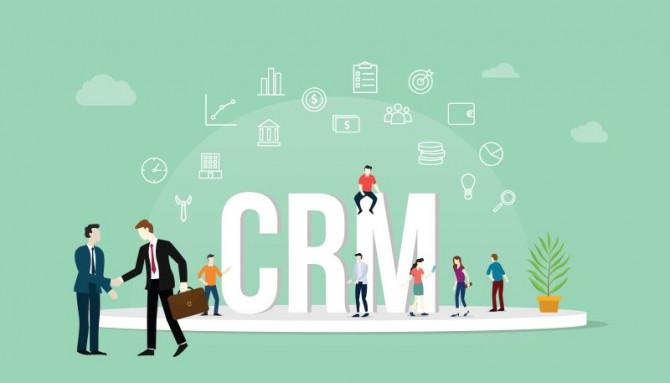How CRM can help salespeople boost their results
Salespersons have a lot of data to manage. And today more than ever, when the experience we give our customers is our differentiator, it’s hugely important not to reduce one’s customers and prospects down to just raw data.

CRM or Customer Relationship Management software is perhaps best described as the entire lifecycle of your relationship with your customers. It is the hub where all of that client data comes to life and can be made meaningful. Data taking you from that all-important ‘lead stage’ (where you’d place your bets of where to dedicate marketing or sales team resource), through to the ‘deal stage’ (where you’ve sold something and now need to deliver), and finally onto the service calls and customer service ‘post-sale’ follow-up. A single view of how you are engaging with your customers.
And for sales teams, it is the epicentre of all the activities, processes and technologies used to manage their current and potential customers.
A company’s CRM becomes the framework on which it builds its processes and systems. Not only allowing a team to monitor and prioritize tasks more efficiently but to also ensure a consistent and predictable customer experience. As you know, you can have an outstanding product, but without an outstanding customer experience to match, your customers will go elsewhere.
With that being said, tools are only as good as the person(s) using them, or indeed, as good as the reasons and methods for using them. Whilst business owners and sales managers may be quick to see the benefits of implementing a CRM platform, salespeople are often less enthusiastic, instead seeing it as yet another tool to manage, or as just another way for their bosses to keep track of their activity. You could end up with a fantastic tool, that no one uses. Or worse, a fantastic tool with poor or incomplete data.
It’s essential for a company to be clear about its needs and expectations before implementing, or even choosing a CRM provider. So first and foremost, it’s vital to establish a clear business case, defining specific and measurable goals. These may include areas like streamlining sales and marketing (e.g. cutting down the number of interactions needed to close a deal) or automating tasks and workflows to increase productivity (e.g. highlight upcoming contract renewals to your sales team two months in advance).
There are dozens of reasons and a countless number of articles detailing why a CRM is so important for your business and how it can impact each area of business. In this article, we explore four key areas where a CRM platform can have a significant and measurable impact.
Wykorzystałeś swój limit bezpłatnych treści
Pozostałe 82% artykułu dostępne jest dla zalogowanych użytkowników portalu. Zaloguj się, wybierz plan abonamentowy albo kup dostęp do artykułu/dokumentu.






 Zaloguj się
Zaloguj się








